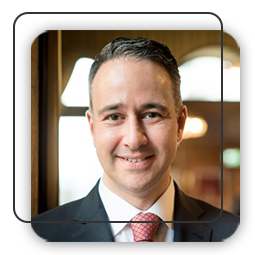Shortage of skilled workers — The great challenge of the hotel industry
According to the Austrian Employment Service (AMS), the catering and hotel industry employed 132,000 people in June 2021 — in June 2019, the figure had been 230,000. Due to job cuts and uncertain prospects in tourism, many switched to other industries. Labor shortage was one of the biggest challenges even before Corona, and has been exacerbated by the pandemic. In my opinion, it is time to use the lessons learned from the crisis, to completely rethink and to go new ways — like Churchill purportedly said: “Never let a good crisis go to waste!”
We have long been living in a “VUCA world”, characterized by volatility, uncertainties, complexity, and ambiguity. We are challenged to constantly realign ourselves and adapt to external conditions. The hotel industry is a very innovative sector when it comes to developing new hotel and gastronomy concepts. Investors and hoteliers spend millions on their “hardware” to stay competitive. But now it is time to invest in digital solutions and in the most important asset — employees. The working world is undergoing the greatest transformation since the Industrial Revolution, and the pandemic is accelerating it. Terms like “new normal,” “new work” and “agility” are ubiquitous. Guests today do not come for the golden faucets, but because they are seeking unique experiences that can only be provided by excellent service. This requires a highly skilled workforce.
The working world is undergoing the greatest transformation since the industrial revolution. It’s time for the hotel industry to invest in digital solutions and in the most important asset — employees.
Digitalization as a great opportunity for the hotel industry
A study published recently by the FHWien der WKW on how to counteract the shortage of skilled workers in the hotel industry came to the following conclusions: To make the industry more attractive for employees again, the way would have to be paved for new work and organizational structures. In addition, the study sees enabling personal growth and networking as key factors for developing young talent. Other pull factors for attracting new workers include expanding incentives and benefits, strengthening employer attractiveness, improving the image of the industry, and increasing the use of digitalization, as well as good change management. For me personally, digitalization, changes to work and organizational structures, and corporate culture are the most central factors.
What does digitalization mean in the hotel industry?
For me, digitalization does not mean replacing people with robots. It’s about using digital solutions for standardized processes that don’t have to be done manually, so that employees have more time for individual guest care. In times of acute staff shortages, digital solutions can simplify processes and relieve the burden on hotel teams.
For most employees, the pandemic has had a direct impact on communication, which increasingly extended to digital channels. At the beginning of the Corona crisis, I was still working in the hotel industry myself. While there was still some skepticism when the communication and knowledge management platform hotelkit was introduced, the staff was pleased to receive information from management via hotelkit and to be able to maintain contact with colleagues via the digital platform, especially during the first lockdown. The knowledge, manuals, various processes, training materials, standard operating procedures and other important information were all stored centrally in hotelkit. Despite high fluctuation, this knowledge was not lost and can now be used to train new employees.
Good change management is necessary to push the process of digitalization. It is important to take away the fear of change from managers and their employees, to define a clear goal with them, and to accompany them along the way. Resistance is often nothing more than fear of the new and the uncertain. Digital solutions and new models of collaboration should not simply be imposed on an organization from the top. People must be on board with them.
For me, digitalization does not mean replacing people with robots. It’s about using digital solutions for standardized processes to give employees more time for individual guest care.
Management as we know it is getting old — New types of leadership
From classic management to leadership
Experience has shown that it is critical to embark mindfully on the path to a new working world, and to shape this process together with the team to find out which “New Work” formats fit the respective organization. Managers play a major role in this process, who often rise to a higher position in the hotel industry because of their technical expertise and professional experience. However, to meet the challenges of today and tomorrow, there is a need to broaden leadership skills, combined with continuous development of the leadership personality.
To communicate a vision to the team, to involve the members in decision-making processes and to offer them as much security and stability as possible, a leader needs to have basic psychological knowledge and the ability to create framework conditions in which a diverse team can work together successfully. The focus is shifting more and more from “management” to “leadership”. In my work as a coach, trainer and organizational developer, I am mainly concerned with supporting people and organizations in their development and accompanying them in change processes.
To communicate a vision to the team, involve members in decision-making processes, and provide them with security and stability, a leader needs to have basic psychological knowledge and the ability to create conditions in which a diverse team can work together successfully.
Move over, Napoleon
The “Heroic Leader” who sits on his high horse like Napoleon and gives orders is out of date in the modern world. New concepts of leadership, such as Ed and Peter Schein’s “Humble Leadership” concept, must be embraced. Vertical hierarchy, with its emphasis on formal, transactional relationships, professional distance, and leading from the top, is hopelessly inflexible and outdated. In a complex world, leadership must rely on a high level of trust and openness throughout the organization. Another interesting leadership concept by Mark McKergow is that of the “host leader”.
Inclusive Leadership: Creating spaces free of fear
If employees lack trust, meaning and psychological security, this has a negative impact on work results and the sense of belonging. “Inclusive leadership” means creating an environment for employees to contribute, openly express their opinions, or question supervisors’ decisions based on their expertise. Collaborative work requires a fear-free space in which concerns, ideas, and opinions can be expressed openly without employees having to fear negative consequences. Only in this way can the team develop further and achieve outstanding results. The most important task of the manager in the age of the “New Work” is to create this framework!

About the author
Hani El Sharkawi
Founder and CEO of Inspiring Leaders. As a coach, trainer, consultant and university lecturer, he shares his experience in leadership, intercultural competence and service excellence. In this role he supports numerous companies.





